War in Gaza enters third year amid Trump’s peace plan bid with Israel, Hamas
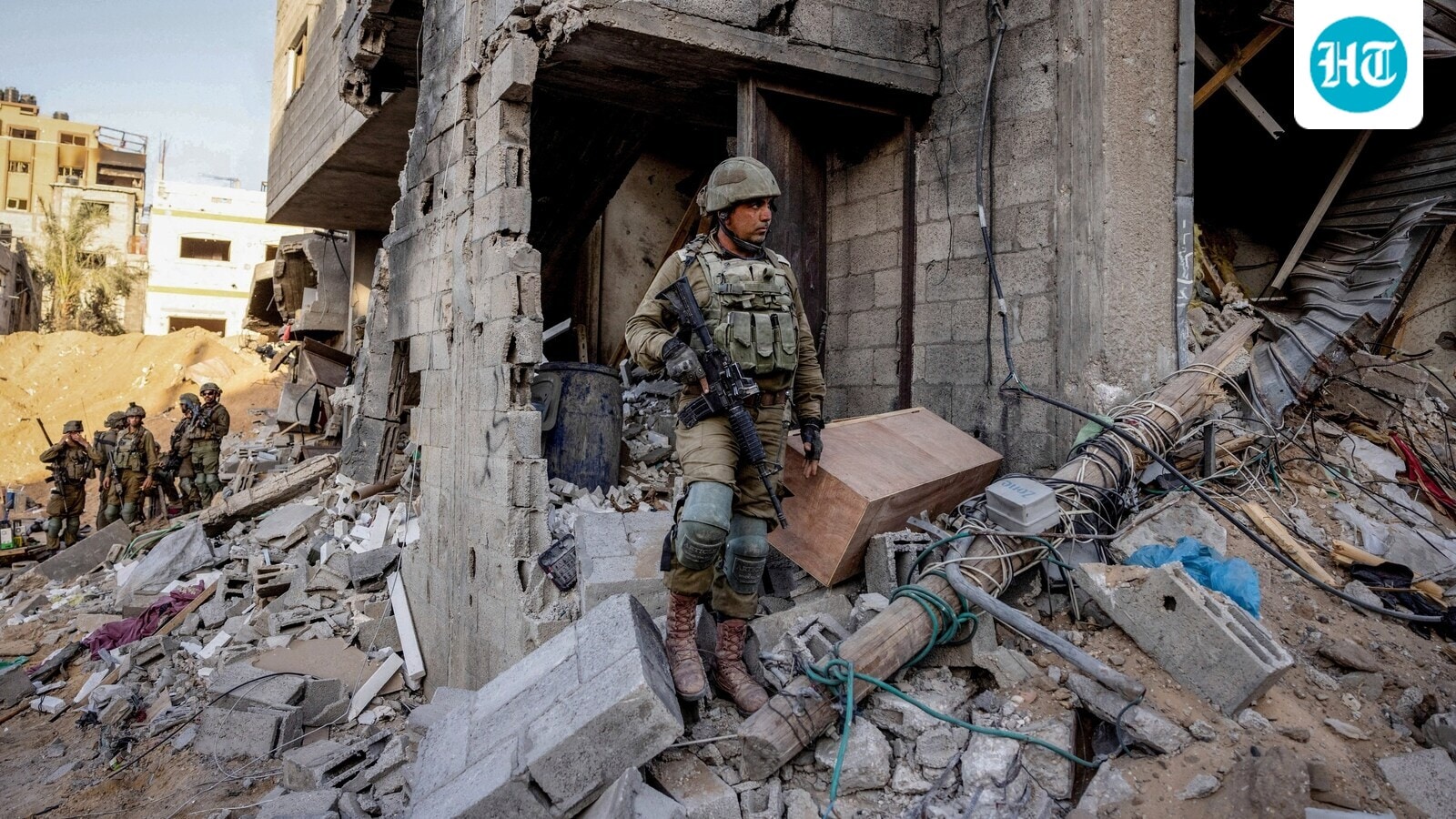
The war in Gaza has now entered its third year. As the world marks another year of the horrific displacement and killing of Palestinians across the Gaza Strip, US President Donald Trump’s peace plan has helped resume the ceasefire talks between Israel and Hamas.
Israeli soldiers stand amid rubble, during the ongoing ground invasion against Palestinian group Hamas in the northern Gaza Strip(REUTERS)
The delegations from the rival states met in Cairo on Monday. As per reports, the first day of truce talks ended on a “positive note” about Trump’s 20-point plan to end the Gaza war.
Despite this progress, Israel continued to bombard Gaza, ignoring the warning issued by Trump. As per Al Jazeera, the Hamas delegation raised Israel’s continuous bombing as a challenge to the negotiations for a hostage release.
Egypt’s state-affiliated Al Qahera News reported that talks will continue on Tuesday ‘amid positive atmosphere’ regarding a ceasefire.
The Israel-Hamas war broke out on October 7, 2023, after the Palestinian militant group launched a terror attack in southern Israel. The attack, which killed around 1,200 people was one of the worst recorded in Israel’s history. In addition to this, Hamas also took around 250 hostages, of which 48 still remain in their captivity.
In response to the attack, the Benjamin Netanyahu-led Israeli government declared a war and announced a complete siege of Gaza strip, brining the overall Israel-Palestine conflict to the worst it has ever been.
Here’s a look at where the war stands in its third year.
Israel marks 2 years of Hamas attack
Hamas’s terror attack on southern Israel killed around 1,200, including women and children. Marking the two years since the terror attack, many Israelis held memorials for the fallen hostages and called for the release of those still being held captive.
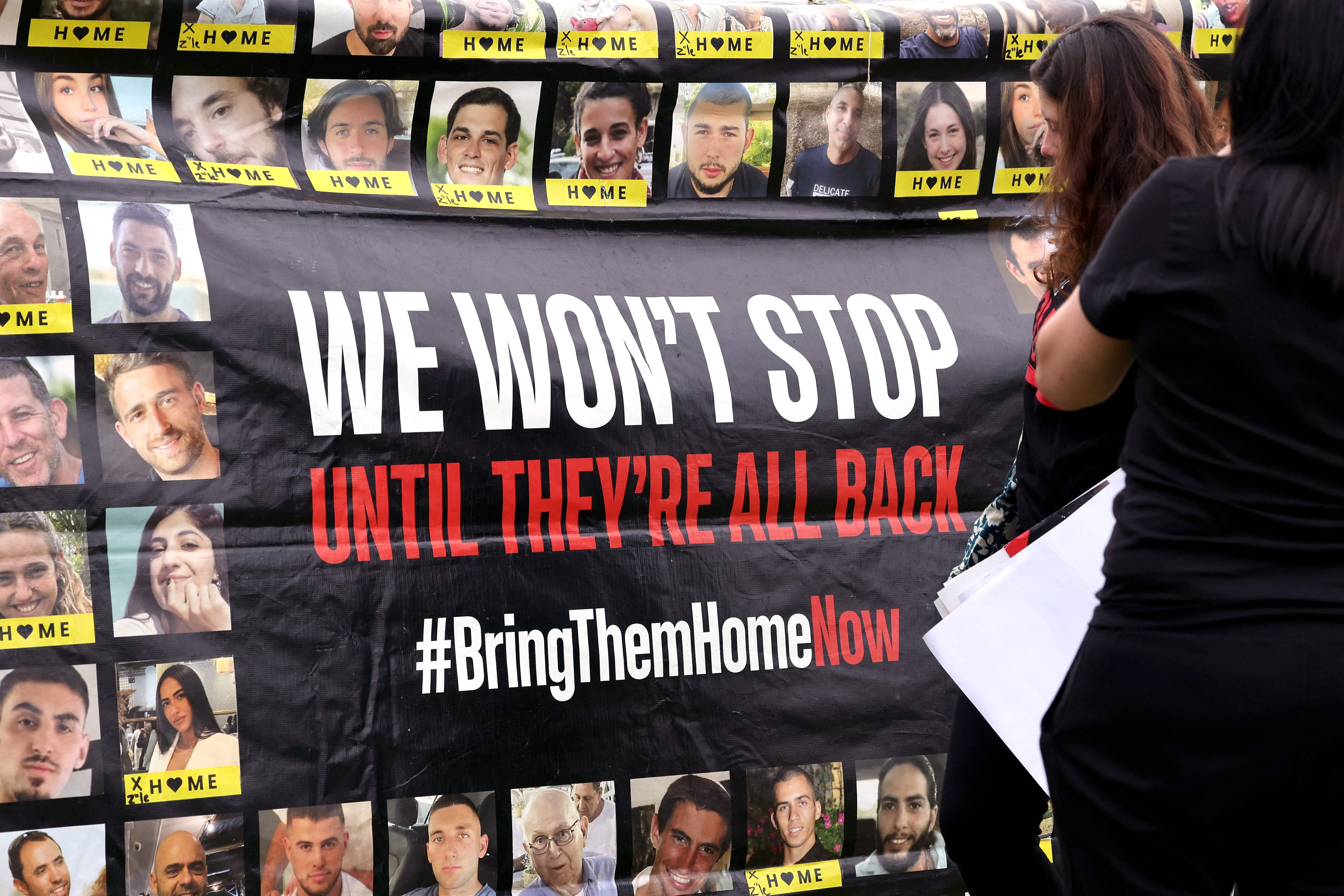 Members of the Australian Jewish community hold a banner bearing the portraits of Israelis held hostage in the Gaza during a rally in Sydney(AFP)
Members of the Australian Jewish community hold a banner bearing the portraits of Israelis held hostage in the Gaza during a rally in Sydney(AFP)
Around 250 hostages were taken by Hamas after the October 7 attack. Of this, 48 hostages remain in Gaza, 20 of whom are believed to be alive.
However, along with mourning, Israelis have continued to call for an end to the war in Gaza and have accused the Netanyahu government of endangering the lives of the remaining hostages due to the continuous bombardment.
Famine and aid blockade
The death toll in Gaza has crossed 66,000, majority of which has been attributed to women and children, as per the Hamas-run Gaza health ministry. However, due to the scale of the bombardment in Gaza Strip, experts believe the death toll is much higher than what has been recorded as far.
In 2025, several UN bodies and international rights organisations declared famine in parts of Gaza as Israel continued its siege of Gaza. In October 2023, Israel announce a complete siege of Gaza as part of its response to the Hamas terror attack. With this, Israel also halted access to food, water and humanitarian aid in Gaza.
In November 2023, Israel and Hamas agreed to a ceasefire, which lasted for a week, allowing the release of hostages and flow of aid. However, as talks fell through, the war resumed until January 2025.
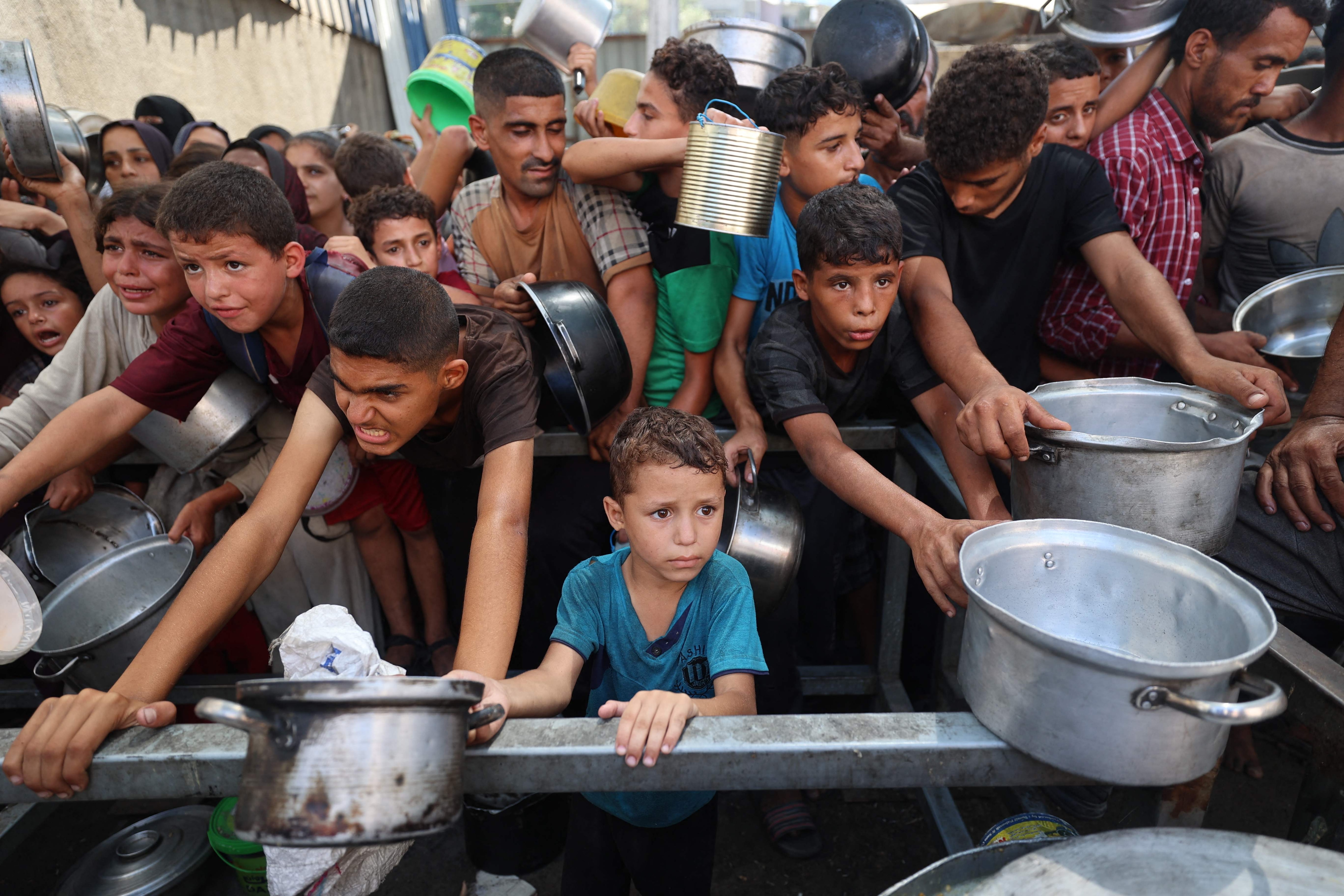 Palestinians queue to receive a hot meal from a charity kitchen in the Nuseirat refugee camp in the Israel-besieged Gaza Strip amid the famine crisis(AFP)
Palestinians queue to receive a hot meal from a charity kitchen in the Nuseirat refugee camp in the Israel-besieged Gaza Strip amid the famine crisis(AFP)
In the January ceasefire, Hamas released more hostages and the remains of those killed in exchange for hundreds of Palestinians who have been imprisoned by Israeli forces.
The ceasefire lasted till March 18, after violations from both sides were recorded. However, after this truce broke, Israel enforced a blockade of all aid into Gaza, leaving the Palestinians starving. Furthermore, several Palestinians were also killed in Israeli fire near food and aid distribution centres run by the US-backed Gaza Humanitarian Foundation (GHF).
Multiple attempts to break this siege have also been made by a group of activists with the Global Sumud Flotilla, however, both times, the boats were intercepted by Israeli forces.
Israeli bombardment declared genocide
With the death toll growing every day for the past three years, the world has now formally acknowledged that what is happening in Gaza is indeed a genocide against the Palestinian people.
The first instance of the Gaza war being referred to as a genocide was in 2023 after South Africa filed a case against Israel at the International Court of Justice, stating that Israeli operations in the Palestinian territory are a violation of the international Genocide Convention.
Ironically, the Genocide Convention was created after the Second World War, when European Jews were massacred under Adolf Hitler’s regime in what came to be known as the Holocaust.
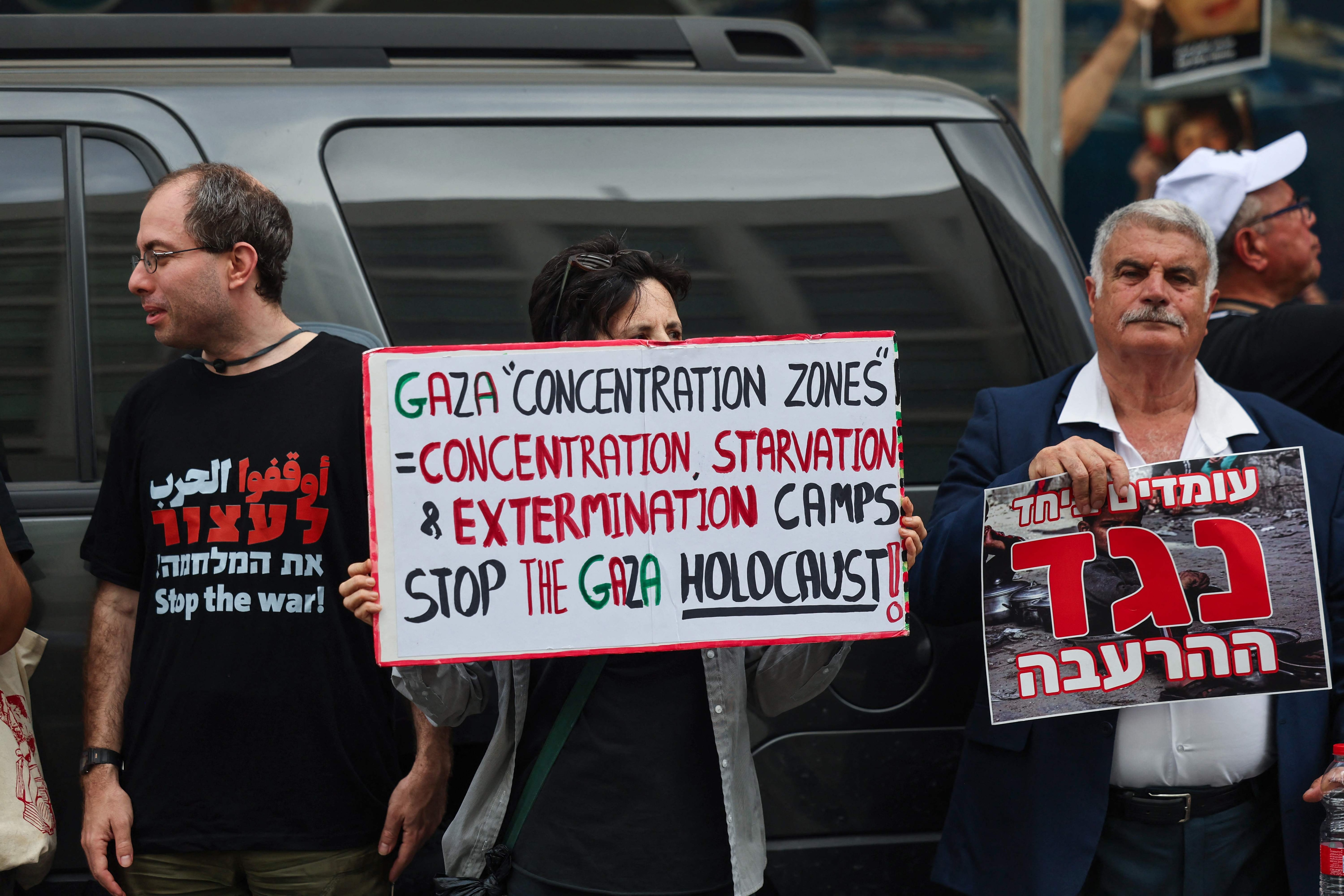 Protesters lift placards against the war in Gaza during a rally in front of the US consulate in the central Israeli city of Tel Aviv (AFP)
Protesters lift placards against the war in Gaza during a rally in front of the US consulate in the central Israeli city of Tel Aviv (AFP)
In September 2025, the International Association of Genocide Scholars (IAGS) has stated that Israel’s actions in the Palestinian territory can be legally defined as a genocide.
A United Nations Commission of Inquiry has concluded that Israel has committed genocide in Gaza and that top Israeli officials, including Prime Minister Benjamin Netanyahu, incited these acts.
Israel has and continues to deny genocidal actions in Gaza, despite strong evidence.
Recognition of Palestine
As the war rages on, several Western nations have now formally recognised statehood for Palestine, adding pressure on Israel to stop and war.
In 2024, Spain, Norway and Ireland set the ball rolling by formally recognising a Palestinian state as part of a bid to end the war.
With no sight of peace talks then, 2025 saw more Western nations moving to recognise Palestinian statehood. France, Canada, Australia, and the UK, all key US allies, recognised Palestine, upsetting Israel and the US.
Along with these G7 nations, Luxembourg, Malta, Monaca, Belgium, Andorra, Portugal and Mexico were the latest to join the list of the 150+ nations who recognise the state of Palestine.
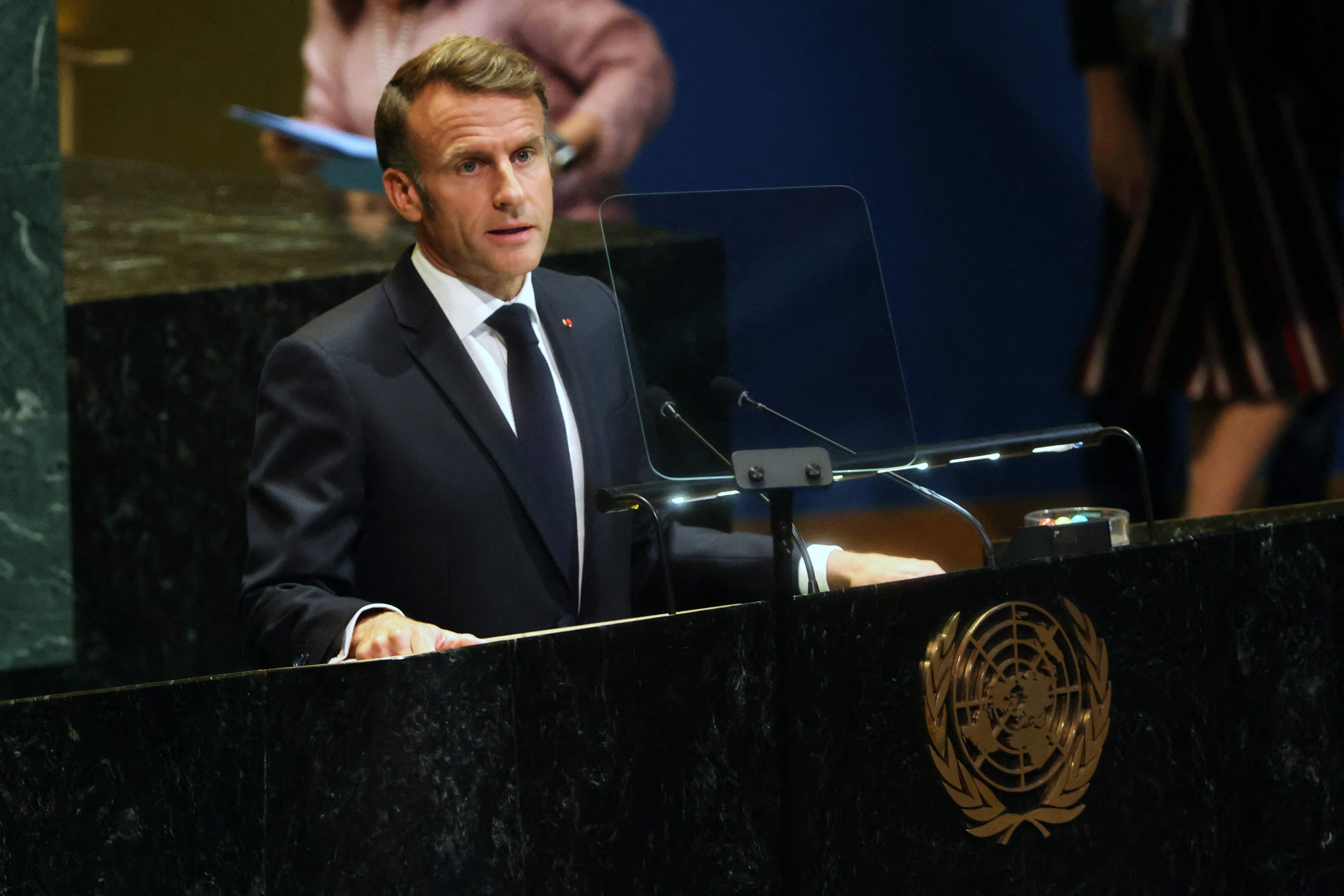 French President Emmanuel Macron speaks at a United Nations (UN) General Assembly where he announced the formal recognition of the state of Palestine.(Getty Images via AFP)
French President Emmanuel Macron speaks at a United Nations (UN) General Assembly where he announced the formal recognition of the state of Palestine.(Getty Images via AFP)
Furthermore, the UN General Assembly, last month, passed and adopted a resolution for a two-state solution between Israel and Palestine after an overwhelming 142 nations voted in favour.
10 nations, including Israel and the US voted against the resolution, while 12 countries abstained.
A frustrated ally
The United States has always been a key ally for Israel, before and during the Gaza war. However, under President Donald Trump, US support for Israel increased, despite growing unrest among American people regarding the US; funding and arms supply to Tel Aviv.
However, Trump’s frustration with Netanyahu has grown since he assumed his role as POTUS in January 2025. From ceasefire violations to deliberate blockade of aid and a short 12-day war with Iran, the US president’s frustrations have been revealed time and again to the public.
In the most recent incident, Trump, who is currently eyeing the Nobel Peace Prize, proposed a 20-point peace plan for Gaza which not only calls for the withdrawal of Israeli forces and release of hostages, but also for a possible Palestinian state.
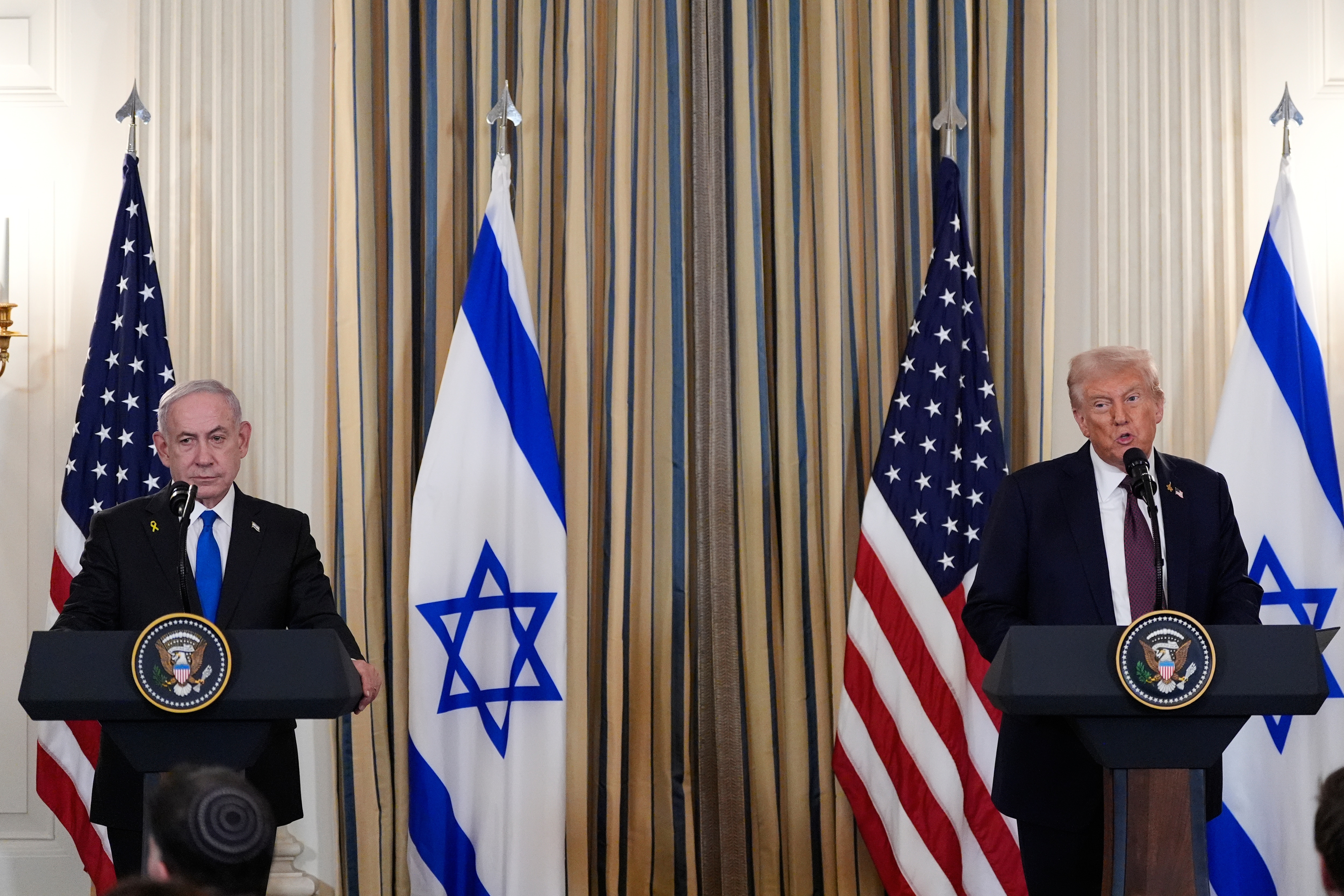 US President Donald Trump speaks during a news conference with Israel’s Prime Minister Benjamin Netanyahu to announce the Gaza peace plan(AP)
US President Donald Trump speaks during a news conference with Israel’s Prime Minister Benjamin Netanyahu to announce the Gaza peace plan(AP)
The peace plan was welcomed by Hamas, which in turn prompted Trump to call on Israel to stop the bombing of Gaza.
However, as per Axios, Benjamin Netanyahu was not happy with Hamas accepting the plan. Axios quoted a conversation between the two leaders during which Trump rebuked ‘Bibi’ for his response to Hamas’ acceptance.
“Bibi told Trump this is nothing to celebrate, and that it doesn’t mean anything,” a U.S. official was quoted as saying by Axios, adding that Trump responded with a – “I don’t know why you’re always so f***ing negative. This is a win. Take it.”
With talks underway in Cairo, the world continues to hold its breath for a ceasefire announcement, which would bring an end to the war.




